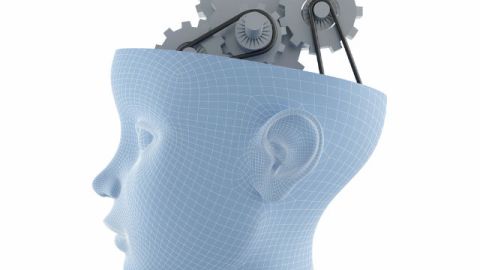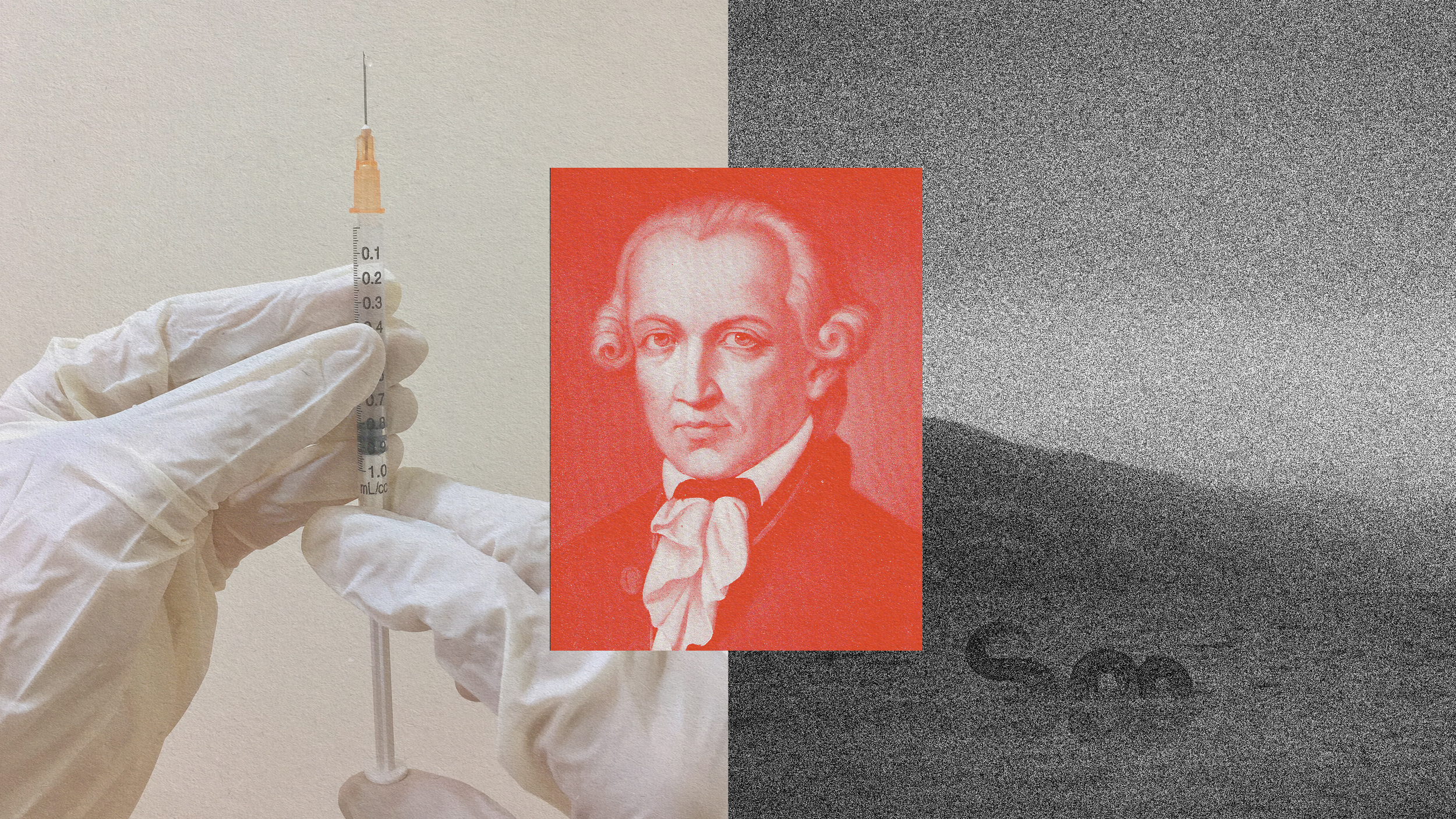How To Be More Reasonable

Are you convinced that your moral and political views are the right ones? If you were to lay out all of your views and examine them, would they fit together in a coherent package? Are you open to new ideas that run contrary to your intuitions?
In my last post I explored Bertrand Russell’s proposition that “the stupid are cocksure” while “the intelligent are full of doubt.” My conclusion: there is more evidence for the former contention than for the latter. Many intelligent people are headstrong too. But there is hope. We can achieve greater coherence in our own views and we can move toward greater civility and agreement with others if we engage in a deliberative process philosophers call “reflective equilibrium.”
In a nutshell, reflective equilibrium is a method of testing our judgments vis-à-vis our moral principles and, where a disjuncture is found, tweaking our convictions and principles so that all fit together more snugly and more intelligently.
This minimal type of reflective equilibrium (which Rawls calls “narrow”) is my focus in this post. It’s demanding enough. Those who wish to achieve “wide” reflective equilibrium will need to subject their principles to greater scrutiny by studying alternative philosophical frameworks. And “full” equilibrium comes only when citizens are in wide agreement about the conception of justice that binds them together. Maybe someday.
Step One
Start by bringing to mind one of your most strongly held convictions. Maybe you advocate abortion rights, support the death penalty or think the estate tax should be abolished. Maybe you think that government should be as small as possible. Maybe you are committed to marriage equality for gays and lesbians.
You might be so convinced of some of your views that you can’t imagine re-examining them. These are exactly the ones to take another look at: you will likely hold those views even after due reflection, but your commitment to them may be helpful in developing your thinking about analytically similar issues and lead you to surprising conclusions.
Beliefs you embrace reflexively in a moment of weakness or without giving them due consideration aren’t yet ripe for the method of reflective equilibrium. Only “considered judgments,” as John Rawls calls them, should be on the examination table. This implies that you should have very little confidence in judgments you arrive at quickly and without adequate study, or when you are emotionally wrought or distraught. Maybe you read Andrew C. McCarthy of the National Review this morning and suddenly think President Obama has sold out the First Amendment to Islamists. (He hasn’t.) Maybe you’re a teacher and jumped up in support of the teachers’ strike in Chicago before learning about the specific issues at stake there. (I made this mistake. It’s not so simple.) Maybe you heard one stump speech by a fantastic orator and were just carried away. (I admit that a tear came to my eye when I listened to Barack Obama’s speech after he won the Iowa caucuses on January 3, 2008.)
Step Two
But if you keep your intellectual guard up when watching cable news shows, listening to candidates and reading blog posts, and if you consult reliable sources and think about what they’re reporting with a critical eye, you are on your way to developing a set of considered judgments. Once they are set, here is the basic procedure for achieving “narrow reflective equilibrium”:
Massimo Pigliucci offers a helpful example of piety in crisis:
Let’s suppose that you believe in the inerrancy of the Bible. Suppose you also think morality comes from God. And further suppose that you maintain that it is immoral to kill children if they curse their parents. Then you read the following in Exodus 21:17: “He that curseth his father, or his mother, shall surely be put to death.”
Now, if you are concerned about the coherence of your beliefs, you have several moves at your disposal. You could admit that the Bible is not infallible, and that God may not have meant what Exodus attributes to Him. Or, you could abandon the idea that morality comes from God. Lastly, you could agree that yes, after all it is all right to kill children who disrespect their elders. In considering any of these options, and actually adjusting your set of beliefs about morality, divinity and children’s behavior, you have engaged in an exercise of “reflective equilibrium.”
Paul Ryan’s Testimony
Last spring, Paul Ryan was pushed into an episode of reflective equilibrium when professors at Georgetown University challenged his “continuing misuse of Catholic teaching to defend a budget plan that decimates food programs for struggling families, radically weakens protections for the elderly and sick, and gives more tax breaks to the wealthiest few.” The signatories to the letter noted a clear inconsistency between Ryan’s religious commitments and his political positions:
[Y]our budget appears to reflect the values of your favorite philosopher, Ayn Rand, rather than the Gospel of Jesus Christ. Her call to selfishness and her antagonism toward religion are antithetical to the Gospel values of compassion and love.
The message is clear: you can be a faithful Randian or a faithful Catholic, but not both. You certainly should not distort the Catholic principle of “subsidiarity” to defend your budget. In response to this claim, Ryan denied the professors’ premise:
The Holy Father himself, Pope Benedict, has charged governments, communities and individuals running up high debt levels are “living at the expense of future generations, and living in untruth.”
The audience was unconvinced by this tack, and it is unclear how carefully Ryan considered the possibility that his budget cuts may actually be inconsistent with the teachings of his church. Nor did he speak to the numbers: over 90 Catholic theologians and bishops signed on to the strongly worded condemnation of Ryan’s budget on religious grounds. But Ryan’s response illustrates one path out of contradiction in the method of reflective equilibrium: revising the principles. Catholic social teaching emphasizes truth telling and long-term financial solvency, he claimed, not feeding and clothing today’s poor and vulnerable. I’ll leave it to you to determine how persuasive this position is.
Of course, Ryan could have opted for the Walt Whitman approach and revelled in his mutually conflicting beliefs. Remember Whitman’s celebration of disequilibrium:
Do I contradict myself? Very well, then I contradict myself, I am large, I contain multitudes.
This is poetic, but not very politic. When it comes to our views about morality or government, contradiction is not something to celebrate. We can do better, and finding an equilibrium is within our grasp.
My Story
A case of cognitive dissonance is the reason some of us decide to go to graduate school. In my case, incompatible convictions grew out of two years I spent in Israel after I graduated from college. I grew very attached to the Jewish state very quickly. But as I very happily lived and learned and worked in Israel, a conflict on a theoretical level nagged at me: Israel is the antithesis of a state that is neutral with respect to religion, as most forms of political liberalism demand. It is a Jewish state. Yet it also aspires to be a democratic state, the only one of its kind in the Middle East. How do Israel’s Arab citizens feel living in a Jewish state? What about secular and non-orthodox Jews, people like me, whose beliefs and practices differ in important ways from the established public faith? How can Israel be both a liberal democracy and a Jewish state? Or rather: can it?
I approached this question by conducting in-depth interviews with Israelis of all stripes — religious and secular, Arab and Jew — and asked them questions about their interpretations of the problem both conceptually and in terms of on-the-ground details life in a religious polity. The process was fascinating and humbling and often only made me more confused. But at the end of my analysis, I found something close to reflective equilibrium by tempering my Zionism and arguing for a new account of liberalism that makes room, in certain societies, for religious state symbols and government funding for religious services while maintaining a prohibition on government policies that subject citizens to religious law without their consent.
Looking back on my conclusions a few years later, I have some doubts. My equilibrium is ready for a tweak. But that’s the very idea behind this process: intellectual homeostasis is a constant yet elusive goal. As Rawls puts it, “those who suppose their judgements are always consistent are unreflective or dogmatic; not uncommonly they are ideologues and zealots.”
When Rosh Hashanah arrives tonight, Jews around the world will begin to atone for the sins of “haughtiness,” of “passing judgment,” and of “obduracy,” among many others. We may never achieve perfect harmony within our own souls, but working toward that goal pays dividends — for ourselves and for our democracy.
Image credit: shutterstock.com
Follow Steven Mazie on Twitter: @stevenmazie





